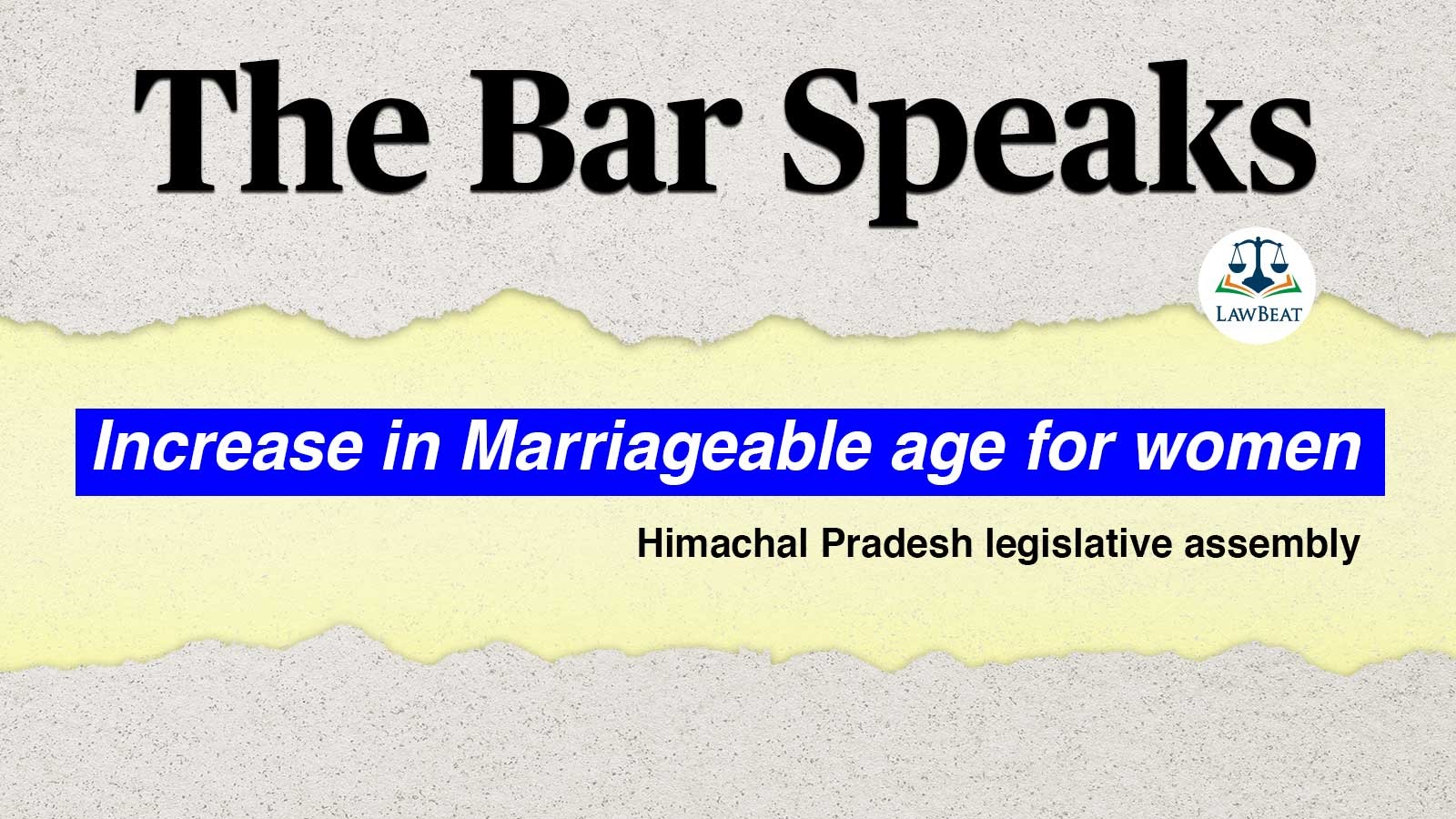Himachal Pradesh’s New Bill Increasing Marriage Age for Women – a necessity or a missed opportunity?

The Prohibition of Child Marriage Act is a legislation by the Centre. So, the next question in line is, can States amend a Central statute?
The State of Himachal Pradesh recently approved a Bill to raise the minimum marriage age for women from 18 to 21 years. The Prohibition of Child Marriage (Himachal Pradesh Amendment) Bill, 2024 seeks to amend the Prohibition of Child Marriage Act, 2006 in the state alone.
This apart, the other key changes in the bill include:
1. The term “child” will now include any male or female under 21 years (for child marriage alone. This provision cannot be read together with any other statute).
2. The period for annulling a marriage conducted below the legal age has been extended from two years to five years after reaching adulthood. Further, the legal petitions for annulment must be filed within two years of attaining majority.
3. The Bill introduces Section 18A, stating that its provisions will take precedence over any conflicting laws or customs.
Reportedly, the Bill highlights that early marriages worked against girls’ education thereby hindering progress in their careers and physical development as well. Lawbeat spoke to a few experts in the legal fraternity to understand the larger ramifications of the proposed Amendment.
The intent for introducing the Bill is laudable, Advocate on Record Sriram Parakkat commented. Increasing the age for marriage is a step towards women's empowerment and social upliftment is important as the age-old practices of child marriage in certain communities can be curbed, leaving the world open full of choices of education and employment to young women.
According to NCRB, the majority of cases under “crime against women” were registered under ‘Cruelty by Husband or his Relatives’ (32.6%). The proposed Amendment, if implemented effectively, may reduce the instances of such marriage-related domestic violence that occurs between young spouses due to lack of maturity, Advocate on Record Shivendra Dwivedi stated.
“Improved health outcomes for mothers and children, enhanced economic prospects and reduction of poverty, reduced gender-based violence/exploitation, slower population growth and eased pressure on resources, and better family planning are some of the other expected outcomes”, he added.
According to Advocate Asif Ali, the Amendment may prove to be pivotal especially for women belonging to backward communities considering that the percentage of Scheduled Castes, Scheduled Tribes and Other Backward Classes is over 40% in the state as per the 2011 census. In line with the other experts, he believes that the new Bill may in effect open several possibilities for women in these communities, the most prominent being education and professional opportunities.
However, with the expected positives, the experts believe that there are a couple of issues that the Bill has overlooked. Given that a significant portion of Himachal Pradesh’s population is rural where societies tend to be more close-knit and possess a higher degree of social cohesion, a parallel system of beliefs such as religion and cultural practices govern the behavior of the members of the rural society. Dwivedi stated that the Bill’s conspicuous uniformity and lack of cultural and religious nuances might not only be considered an affront to the religious and cultural autonomy of the rural people but also run the risk of being rejected and resisted if it is not bolstered by other substantive efforts such as education, infrastructural development, work-place safety, sensitization and promoting awareness.
“The Bill must be accompanied by allied efforts on the part of the State for its effective implementation and acceptance.”
Raising the minimum age for marriage may also lead to an increase in live-in relationships, which can have unintended consequences such as unintended pregnancies, as couples may engage in pre-marital sex without access to legal marriage, Adv Dwivedi further stated.
“The taboo associated with unwanted pregnancies perpetuates a cycle of stigma, shame, and secrecy, leading to devastating consequences for women. This stigma can cause women to feel embarrassed, ashamed, or guilty, driving them to hide their pregnancy or seek secret abortions, which can result in unsafe procedures and health complications. The lack of support from partners, families, and communities can further exacerbate the issue, leading to social isolation, limited access to resources, and mental health problems like anxiety, depression, and suicidal thoughts”, the Advocate added.
Keeping in mind, a similar line of thought, Adv Asif stated that physical relationships, though legal, are a cultural taboo. While bringing up the age for marriage for women, the Bill is, in a way taking away the right of girls above 18 years to marry, thereby “denying them that choice”, he said.
Can there be a State amendment to a Central Act?
The Prohibition of Child Marriage Act is a legislation by the Centre. So, the next question in line is, can States amend a Central statute? As per Article 254 (2) of the Constitution of India where a law made by the State Legislature on a subject covered by the Concurrent List is inconsistent with and repugnant to a previous law made by Parliament, then such a law can be protected by obtaining the assent of the President. This makes it clear that States can carry out amendments even to Central legislations with the President’s assent and such amendments would be applicable in that particular State only.
In fact, statutes such as CPC, CrPC, etc. have State Amendments, and many of these provisions are different in many states, Adv Asif clarified.
